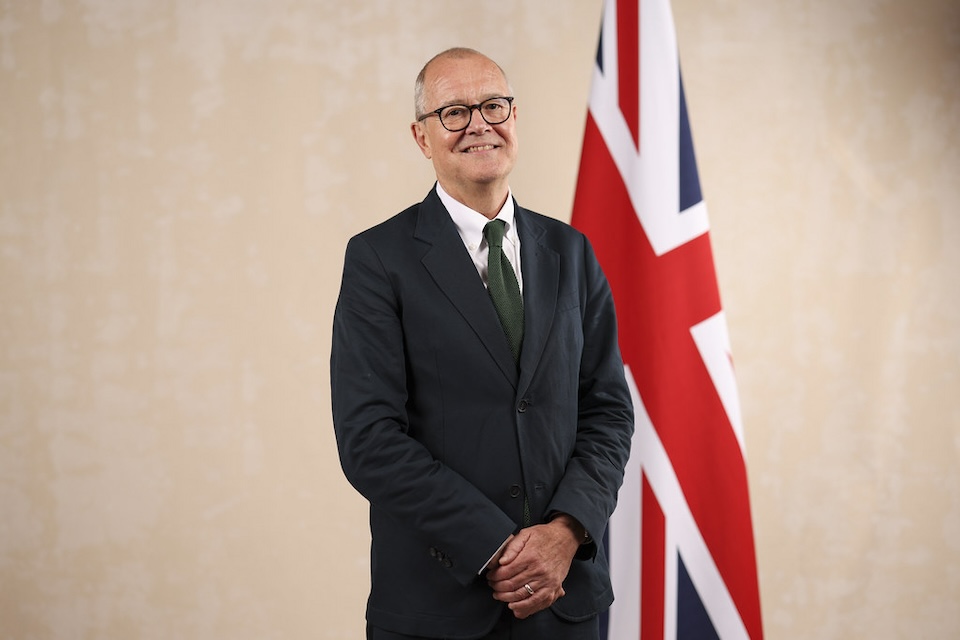The need for action on climate change is urgent
Sir Patrick Vallance and Professor Stephen Belcher describe how nations have a unique opportunity to chart a path to net zero emissions.

If any of us needed a reminder of the urgency of climate change, then look no further than the recent spate of extreme weather around the world. The record heatwave in North America has been shown to be virtually impossible without climate change. The floods in London and northern Europe, and the heatwave and wildfires in southeast Europe provide a sad taste of the future.
In November world leaders will gather in Glasgow to take stock of global efforts to reduce greenhouse gas emissions building on the landmark Paris agreement in 2015. Back then leaders pledged to limit global average temperature rises to well below 2 degrees above pre-industrial levels, with an aspiration to keep the temperature rise below 1.5 degrees.
So what must we do and how can sciences help?
The target destination is clear: to achieve net zero emissions. As with any journey we need to chart possible routes, we need to be able to assess where we are on the journey, and we need to be prepared for the hazards along the way.
Nations need urgently to revise their paths to net zero, through their nationally determined contributions. Global net zero emissions will ultimately stabilise the climate, but unless mitigation measures are deployed quickly it will not be enough to achieve the Paris goals.
The climate system is unforgiving: every tonne of carbon dioxide accumulated in the atmosphere raises the temperature and, since the industrial revolution, we have emitted more than 80% of the carbon dioxide that would keep us below 1.5 degrees. Forty gigatonnes were emitted in both 2019 and 2020, leaving at most about 500 gigatonnes before we risk breaching the Paris goal.
But there is still time to act and to meet the Paris goal. Countries should plot mechanisms for scaling up and deploying technologies that already exist, such as wind and solar renewables and electrification of transport. It is often said that the UK emits only 1% of global emissions, so we don’t matter — but the UK can make a huge difference by promoting innovation across the globe.
We need to change how we live our lives to move all of us from energy hungry habits on to clean technologies and reduced energy consumption. And there are other benefits to be gained: paths to net zero could provide greater energy security through local production and improve health through better air quality.
Progress needs to be measured. Building on the fair and transparent approach, a live dashboard needs to track current emissions of carbon dioxide. It could also assess the role of climate change in shifting the odds of extreme events. Presently, emissions are based on estimates of fuel use, farming practices, etc, which are then aggregated into emissions from sectors, such as transport, agriculture, etc, and then into national contributions.
Building on these inventories, an objective system could directly measure greenhouse gas concentrations and use modelling to infer emissions in near real time. Such a measurement system would chart the immediate effectiveness of mitigation policies and allow further targeted action in polluting sectors. As fossil fuel use decreases over the next decade or two, an enhanced system will need to assess accurately emissions from other sources. This direct measurement is achievable, and a pilot system is being trialled in the UK, and should be pursued now.
Even with immediate action to reduce emissions, we shall need to build resilience to extreme weather events. We urgently need to know the local weather extremes the new climates will throw at us, and to deal with the impacts. Scientific and engineering solutions are needed to answer these questions and to adapt cities, transport systems and agriculture. Failure to invest in adaptation will prevent us reaching a resilient path to net zero.
The UN intergovernmental panel on climate change (IPCC) has published the first part of its sixth assessment report on climate change, which has provided unequivocal evidence that climate change is man-made and that no society on earth will be immune from its effects. Then, in less than 100 days, COP26 in Glasgow will provide an opportunity to take stock and commit to action. The need for action is urgent. But we have a unique opportunity, when society and industry are rebuilding in the wake of the COVID-19 pandemic, to address climate change in a fair and just way.
Sir Patrick Vallance is the UK Government Chief Scientific Adviser. Professor Stephen Belcher is Chief Scientist at the Met Office.
This article originally appeared in The Times: The need for action on climate change is urgent but it is not too late